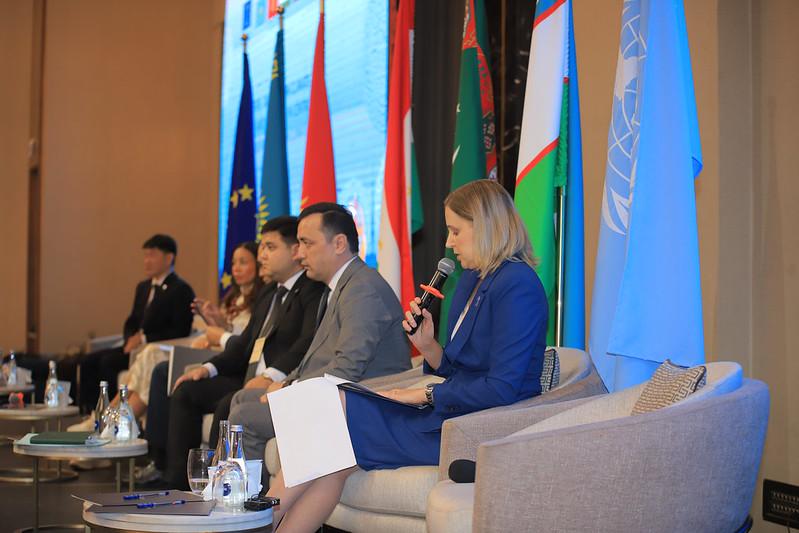ASTANA – A High-Level Dialogue on Climate Change and Resilience in Central Asia, kicked off in Bishkek on Sept. 21, overviewed a pivotal role of early warning systems in building resilience and mitigating climate change in the region, reported the United Nations Development Programme (UNDP) in Kazakhstan.

Photo credit: UNDP in Kazakhstan.
Early warning systems are seen as a proactive tool to confront Central Asia’s climate change effects, including intense heat waves, drought, heavy rainfall, and other extreme weather events.
These systems, aligned with global frameworks such as the Paris Agreement and the Sendai Framework for Risk Reduction, are crucial in the fight against climate change, contributing significantly to the development agenda.
According to Bakytgul Baitanbalieva, the head of the Scientific and Technical Development Department of the Climate Policy Department of the Kazakh Ministry of Ecology and Natural Resources, Central Asian countries should invest in infrastructure, capacity building, and knowledge sharing to better prepare for climate risks and reduce their impact on society, economy, and ecosystems.
Marilyn Josefson, Ambassador of the European Union (EU) to the Kyrgyz Republic, identified climate change as a top priority in international cooperation efforts. With over 105 billion euros ($11.7 billion) invested in Central Asian states in a decade, the EU reaffirmed its commitment to support the region in political dialogue, development cooperation, and multi-stakeholder partnerships.
Representatives of government agencies, international experts, and scientists from Kazakhstan, the Kyrgyz Republic, Tajikistan, Turkmenistan, and Uzbekistan agreed to collaborate closely and consolidate joint efforts to address climate change challenges.
In March last year, the UN Secretary-General launched the Early Warning for All initiative, aiming to protect every person on Earth with early warning systems by 2027.
With over 80 projects implemented on climate information and early warning in 60 countries, UNDP facilitated installing more than 150 early warning systems, increasing access to critical climate information for 2.3 million people.
The regional project Climate Change and Resilience in Central Asia, funded by the EU, focuses on enhancing knowledge about climate fragility risks, facilitating risk-based policy development and resource management, and supporting risk-mitigation practices.
As a global UN development network advocating for change in around 170 states, UNDP connects countries with knowledge, experience, and resources to address international and national development challenges.

